Teach Your Children Well
How much has political correctness damaged parents' confidence in schools? And in the age of the internet, is compulsory classroom schooling still the only way?
‘Schools in Crisis!’ has become something of a hot media button in much of the Western media - and not just in fringe conservative publications. According to a 2021 piece in the Washington Post, schools are “facing a crisis of epic proportions... test scores are down, and violence is up. Parents are screaming at school boards, and children are crying on the couches of social workers. Anger is rising. Patience is falling.”
Schools in crisis?…..are they not part of the very furniture of modern society; as much a part as its factories and offices? That vast infrastructure of buildings full of classrooms children and teachers. Kids spending their weekdays being taught by teachers – how could things possibly be otherwise? In this essay I try, firstly, to sketch an impressionistic snapshot of this ‘Schools in Crisis’ media flurry and then to dip a toe into the hazy waters of what could possibly replace them as the means by which society teaches its children.
Crisis in the Classoom?
America has seen a sharp growth of parent anger and activist pushback against instances of classroom indoctrination - sometimes even at kindergarten age. The trigger was how covid pandemic lockdowns heightened parental awareness of the school curriculum. Opeds like this one are not uncommon: “When schools went remote, parents found out what was actually going on inside the classrooms. Teachers were coaching students to hate themselves, their country and their religious traditions and sexualizing young children.” Most inflammatory has been the ‘gender studies’ fads that leaked from academia’s Social Justice petri-dishes a few years back into the media mainstream and thence into the nation’s public schools. The response to this anger by officialdom has varied by state. In blue states it has mostly been met with pious disavowal from the school authorities. But in some red states - like Florida and Oklahoma - the parents’ cudgels have been taken up by the state executive. And even in ultra-woke blue states like California and New England, organised parental mobilisations - like Protect Kids California and Parents Unite - have sprung into action.
Post-lockdown has also turbocharged America’s already strong homeschooling tradition. The option for parents to opt out of state schooling provision and do-it-themselves exists in most Western countries (in principle at least) but the take-up has tended to be minimal. America is the big exception with currently 4 million homeschooled children. A reflection perhaps of its residual cultural mythology of the self-reliant frontiersman distrustful of all things governmental.
Some of it will be a positive opting out of the public school system and some probably will be more reactive; mothers giving up – post-lockdown - on the uphill struggle of policing their kids’ persistent truancy. Has School Become Optional? asks this New Yorker article about school authorities’ struggle with a combination of rampant truancy and parent apathy - particularly in poorer neighbourhoods.
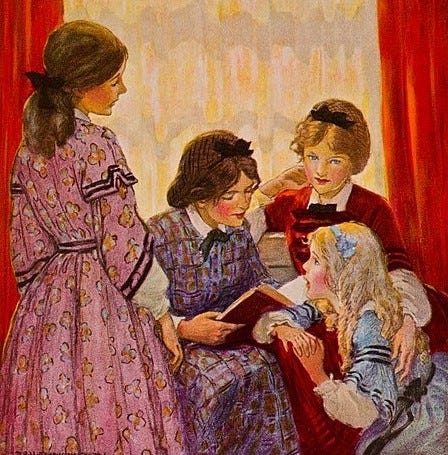
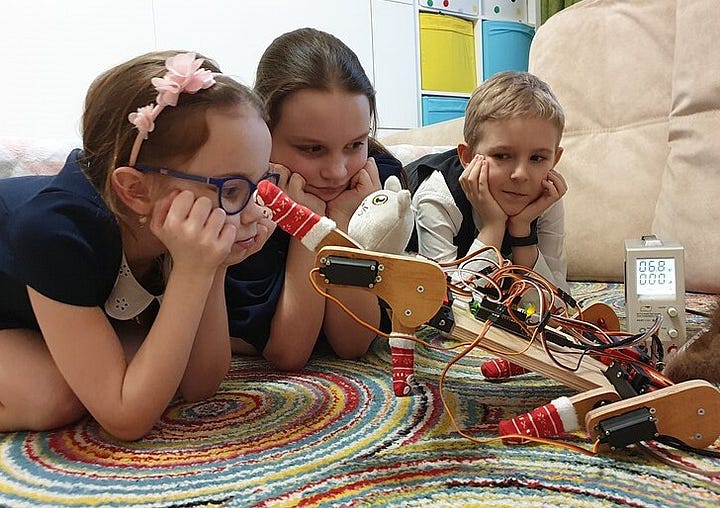
In the UK no similar surges of homeschooling or organised parental rebellion are on the horizon. But parent exasperation at ‘gender studies’ certainly is...as these two recent media storms illustrate:
Storm 1: The ‘Child Identifying as a Cat Controversy’ was a story that briefly went viral on the net when a transcript came to light of a pupil being berated by her teacher for holding “gender critical” views. Conservative Woman has the full transcript.... edited highlights here:
Teacher: You’ve just really upset someone...... Where do you get the idea there are only two genders?.......
Girl: There’s only a boy and a girl, there’s no other private parts......
Teacher: Gender is not linked to the parts you were born with; gender is about how you identify......There are lots of genders: there is transgender, agender, people who don’t believe they have a gender at all......
Girl: Yeah, but you can’t have that.....: It’s our opinion: we just don’t agree with it. We just think if you have a vagina you’re a girl, if you have a penis you’re a boy.......
Teacher: But cisgender is not necessarily the way to be. You were talking about the fact that cisgender is the norm, that you identify with the gender of the sexual organ that you were born with or you’re weird: that’s basically what you’re saying which is really despicable.
Storm 2: Here is a lightly edited extract of a mother describing her son’s experiences of gender studies at Eton (published in The Critic in 2020):
Your son has gone quiet on the family holiday. He asks you for help with his homework. It transpires that, at the age of fourteen, he’s been dispatched to review a novel about incestuous rape and pregnancy. Your son attends a film about “Seahorses” (and which thirteen-year-old wouldn’t)? It turns out to be a graphic account of male pregnancy. The contrast with his expectations is so disorientating that he wants to leave the room but feels he cannot, worrying he will be marked out. As what, exactly? A normal boy. In second year, your son attends a talk by transsexual author Juno – previously James – Dawson. A quick search revealed her to have written a “trans Alice in Wonderland, full of cocaine, cosmetics and the sexually abusive Tweedle twins” concerning a boarding school pupil with an “an active, app-based sex life with married men from outlying commuter towns”. We were told that the talk encouraged boys to experiment sexually. Books for sale in the foyer afterwards included This Book is Gay, which is basically a sex manual. Parents were not offered an opt-out as it wasn’t “sex education” but “literature”.
Soon the ripples from the pebbles being cast in your son’s imagination become crashing waves. A heavily-promoted event in the school’s history library – billed as a “Creative Pornography Workshop” – is open only to the two youngest years. It is offered by “The School of Sexuality Education” whose “team ....deliver ‘sex positive’ workshops on porn, consent, healthy relationships and sexual pleasure.”
The school invites “The Good Lad Initiative” to undertake annual “masculinity” workshops for the younger year groups..... In these sessions, your son is made to role play “coming out as straight” – and he then returns to an all-male boarding house co-habiting with 18-year-olds!
These stories may well be atypical - at the extreme end of classroom wokeification. But what is far from atypical is that Progressivism has been the default education philosophy - from since 60s at least - and so anything that smacks of Social Justice will sooner or later find its way into the curriculum. But as anyone familiar with my writing knows, this academia-leftist nexus is something I have often written about so I’ll leave it there and move on to a discussion of the institution of formal schooling per se:
Schools as Part of the Furniture of Modern Life
* How did it come to be part of the metaphorical furniture of modern society?
* How well has it worked…. when judged against its own ostensible goals?
Mass compulsory formal schooling had its origins in the 19th century and is normally thought of as a by-product of the industrial revolution and mass urbanisation. It has long since become synonymous with Education but some educational historians have argued that this was not infact the primary driver. Schools have also served a vital function as part of the apparatus of the modern bureaucratic state - keeping urbanised children penned whilst the wheels of industry turned. It seems to me that they have proved more successful in this regard than they have in delivering on the rhetoric of their ostensible purpose....producing a roundly educated citizenry. [It is also a widely accepted historical truism that our modern concept of childhood was itself largely a product of the industrial revolution.]
Education has always had the status of a sacred institution right across the political spectrum. When Tony Blair came up with his “Education, Education, Education” pitch in the 1997 UK general election it seemed like just unassailable common sense. So what to make then of broadsides from radical deschooling intellectuals (see below) questioning the very basis of our whole education system. Broadsides like these: “Schools fail to teach what they pretend to teach. Most of their inmates spend years failing to learn things like Mathematics, Science and French”[1] ....and: “An illusion on which the school system rests is that most learning is a result of teaching.”[2]
Do most children really absorb (let alone retain) the content of most of their classroom lessons? When I was a schoolboy – a bookish schoolboy – I was conscious that, whereas the teachers generally had my full attention, many of my classmates were only half-listening at best.
I spent part of my working life as a teacher. The relentlessly Progressive educational theorising that I imbibed on my one-year post-graduate teaching qualification left me feeling that it amounted to an intellectual massaging of an unsayable truth.... that perhaps a majority of children have little appetite for being schooled. And my own classroom teacher experience? I used to love the little band at the front of the class who just wanted to 'do' the lesson. I was vaguely irritated by (if sometimes indulgent towards) the mass in the middle who would just go with the flow - either with the lesson or with the disrupters depending on who was winning. And I had little patience with the (often highly smart-arsed) trouble-makers at the back. It always seemed to me a perverse feature of classroom dynamics how these last would necessarily get 90% of your teacher attention and your 'little band at the front' only 5%.
And in recent decades another dark cloud has formed over the compulsory schooling model; one that ‘society’ has been in denial about for too long. School’s other function – keeping children under control – has seriously broken down in many cases. Classroom indiscipline and violent delinquency has reached horrifying proportions in some parts of the system. I think it’s fair to lay at least part of the blame for this on decades of anti-disciplinarian educational theorising by experts in academia. Post-60s Western ultra-liberalism should, with hindsight, have been careful what it wished for.
Which brings us to another question: to what extent does our formal schooling system survive because society needs it as opposed to because the Education Industrial Complex needs it? One trenchant criticism can be levelled at all bureaucratic institutions is that it is not in their nature to notice whether the purpose for which they were originally created is still a valid one. They are never going to do a Lone Ranger and ride off into the cultural sunset... “job done”. And education is no exception – it has become “a major service industry creating demands for its own services and validating its own activities”[3].
Whilst almost everyone would agree that Education is a Good Thing, it does not necessarily follow that schools and universities are axiomatically the places where it should primarily take place.
Historically, the idea of compulsory schooling is strongly associated with 19th c. moves to end the abuses of child labour. But a strong case can be made that many ‘non-academic’ children’s level of motivation is higher in (non-exploitative) workplace environments.
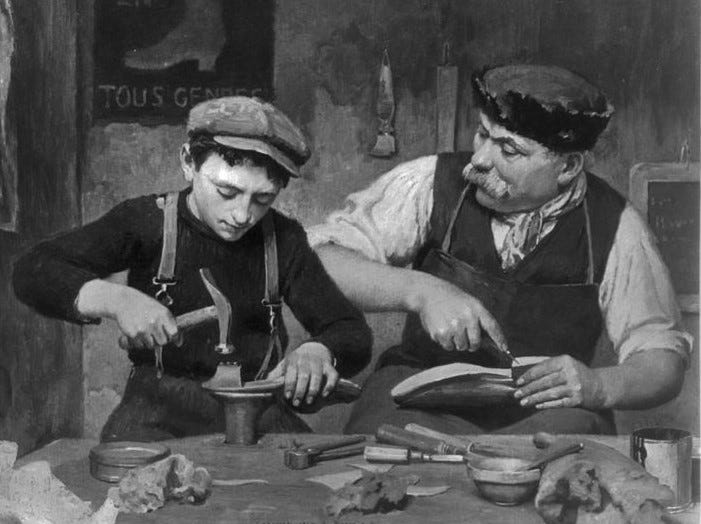
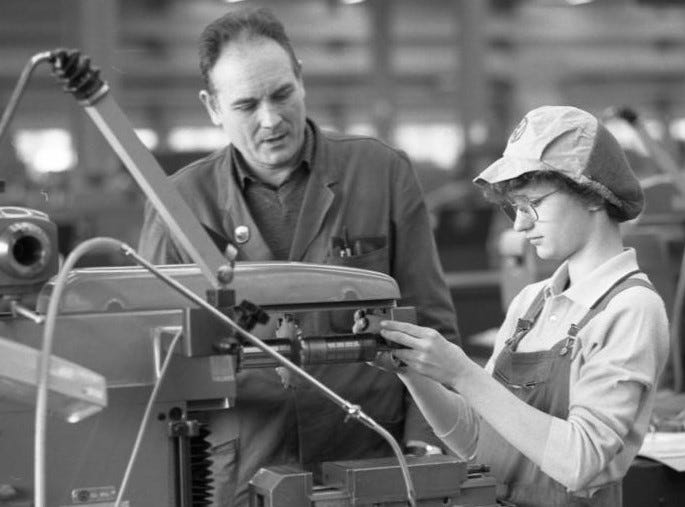
There is also substantial, well-thumbed (if rather esoteric) literature on alternatives to schooling. Most famous is Ivan Illich’s seminal Deschooling Society. Indeed you might say that schooling’s chronic failings - especially in the hormone-drenched secondary sector - make it wide open to such critiques. The problem that radical theoreticians have always come up against though is this: what else are we supposed to do with children whilst their parents are at work?
NOTE: I am conscious that the term ‘Deschooling’ has more recently come to have a more specific meaning in the context of the Homeschooling movement (along with ‘Unschooling’) but, in the discussion below, I am referring to its original concept as a radical rethink of how a society learns and transmits knowledge.
‘Deschooling’: is it just an intellectual’s mind game?
In my researches for this essay I delved into the literature of various influential deschooling thinkers including Paul Goodman, Ivan Illich, Everett Reimer and Ian Lister (who I got to know a little in the 80s). It is striking that this radical response to a perceived ‘schooling crisis’ reached its apogee in the early 1970s and then tailed off. Most assessments, in the fifty years since, seem to concur (rightly in my view) in the idea that they were much better at identifying the serious flaws in the school system than in coming up with realistic or scalable alternatives to it.
To my mind the most unrealistic thing is that they all seemed to share a romantic assumption that children have an innate thirst for Education....one that is being stifled by ‘the system’. They never seem to have considered the possibility that all alternative forms of delivery (or state-sponsored facilitation) might meet with similar apathy. Everyone does learn (one way or another) but it does not follow that they are actively seeking ways to accelerate the process, whether by state directed or self-directed means.
Deschoolers all seemed to share another dubious Rousseauan notion – that of children as innately ‘wise and realistic’. And indeed the tide of anti-disciplinarian schooling philosophy in the 50 years since has rather gone their way. But in 2024, I think most adults would - to some extent at least - lament the decline of the schoolroom’s traditional function (at its best) as the inculcator of a ‘hidden curriculum’ of discipline, punctuality and knowing when to sit still etc.
The other great lacuna in deschooling theorising is any realistic answer to the question of what would happen to children, their parents and the economy if their radical ideas actually came to pass. Their alternatives are all predicated on a vague parallel sub-utopian re-making of our whole Western welfare-capitalist economies.
And so the short answer to the question I posed in the title of this section.... is Yes. But I’ll finish this brief survey of deschooling literature with an amusing excerpt from a dystopian imaginative piece about the prospect of ‘Permanent Education in 1984’ because I find it eerily prescient of our 21st c. Therapeutic Culture. “A child is born in the United States in 1984. He can never look forward to getting out of school. From the ‘infant school’ he starts attending at the age of six months to the ‘geriatric learning centre’ he dies in, he finds himself going to school all his life ‘for the good of society’......and so we bid goodbye to this lucky man, the minister chants, ‘firm in the conviction that he will go to heaven where he will attend a ‘school for angels.’”(John Ohliger)
The Future of Schooling: what might actually happen?
A future without schools is certainly hard to imagine but not impossible.
Huge advances in genetics and evolutionary psychology have seriously undermined the ‘blank slate’ Progressive ‘equality of opportunity’ model that has dominated school policy for so many decades. A huge body of evidence is now available showing that the learning potential of each child is, to a far larger extent than previously realised, substantially a matter of genetic and heritable luck of the draw.
What do these advances have to say about the deschoolers’ Case Against Schooling? Well two things....but pointing in opposite directions. The evidence seems to show that:
Neither schools nor parents can have much impact on a given child’s capacity for academic achievement because it is so so hard-wired into their genetic inheritance.
But the school peer group will have a big influence on how they turn out in other respects.
In other words, it may well be that formal schooling seriously fails to live up to its Education rhetoric but nevertheless has an important role to play in a child’s Social development.
This recent post on Freddie deBoer’s Substack says something similar. Responding to “emails from fretful parents, asking me about the value of various educational interventions” he says “.... if you’re looking for something to meaningfully move your child around in the academic performance spectrum, to take an X percentile kid and make him an X+Y percentile kid, the answer is no... what you’re asking me about doesn’t work. Because outside of some very specific and rare scenarios .....nothing substantially changes the average kid’s place in the performance spectrum. Academic outputs are.....based largely on genetics, conditions in the womb, and the “unshared environment,” which is our awkward term for that big chunk of variation we can neither explain nor control......”
Probably the biggest challenge to the school system is the dizzying pace of change brought about by the internet. Most deschooling literature had been written by the early 70s and so the enormous transformative impact of the digital age is absent from the discussion. It is probably true to say that, in 2024, the average kid soaks up far more ‘learning’ from the internet – whether for good or ill – than they do from schoolteachers. It would surely be surprising if this gigantic cultural transformation did not eventually result in a parallel transformation of the way we educate the young.
In the information-explosion, digital age, anyone who wants to educate themselves can do so. Pre-internet this would have been much harder. And could more parents working-from-home result in more homeschooling, aided by a growth of support networks like this, this and this? Whilst this is unlikely to replace formal schooling in the foreseeable future, it might result in some atrophying of provision. Formal schooling could become the default modus-educationali of just certain sections of society and no longer universal.
It seems to me that any cultural shape-shift that led to the state backing off somewhat and encouraged parents to take more responsibility for the education of their children would - on balance - be to the good. And not just for the children but good for family life too. I understand the contrary stance: state intervention as the mechanism for transcending the limitations of a child’s parental background but the evidence (accumulated over 100 years and more) is that this has not worked….. not in terms of Education. So this is not me turning all Panglossian ‘best of all possible worlds’. Bad parenting will remain the unlucky fate of millions. In any case I am very sceptical of futurology so I’ll leave it there.
[My title Teach Your Children Well is taken from a 1970s Crosby Stills & Nash song which the boomers among you might vaguely remember. As a song it’s so-so but it does have this rather apposite line: You who are on the road must have a code you try to live by.]
[1] Ian Lister Deschooling 1974
[2] Ivan Illich Deschooling Society 1971
[3] Ian Lister introduction to Illich’s After Schooling What? 1976

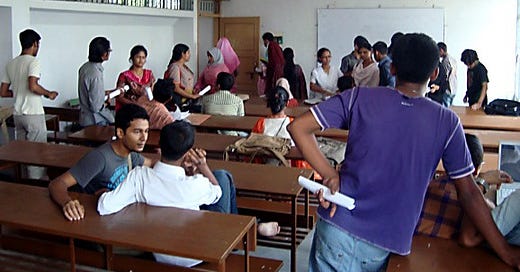




Initially reluctant homeschooling mom of 8, living in rural Midwest, USA chiming in. Since having a baby every other year (happily) for 14 years made consistent, complicated lessons challenging, we simplified and focused on the three R's, with a heavy emphasis on Reading, in the form of read-alouds. As many classics as I could manage. They were as eager to hear the stories as I was to read them! The oldest 3 earned their BAs in 4 years, the next 2 are working on them, and I have 3 teens at home still. At times I worried about not hitting all the traditional subjects, but as commenter Urbaschek said above, maybe what our kids learned was "in spite of their education rather than because of it."
It may seem odd, but some people don't want their children turned into homosexual communists.
Some things that I think could be added to the school curriculum:
Methods of control: What methods do the powerful use to control the populace? Classroom exercises would be in order, wherein students think up what kind of subterfuge they could use if they were kings and queens, how they would recognize it and how to counter it. People often don't recognize them for what they are when they see them. The series The Hunger Games would be illustrative. (My opinion is that military veterans are more likely to recognize them than others, but individuals vary.)
The use of false flag operations through history: This might be thought to be part of methods of control, but I think it deserves it's own heading. Students should be asked to explain what kind of false flags they would plan if they were a king and were trying to subjugate their populace.
Criminal thinking: Yes, criminal. Police officers over time learn to think like criminals; while walking or driving they will notice good places to perform a mugging or rape, think how they would rob a particular store, and so on. It's part of the job for them and makes them better officers, but there's no reason the average citizen couldn't learn it.
Genocide and democide in history: An important thing to know about. Since it's important to know that it can happen here, know what factors bring it into being, what can prevent it and what we as individuals and families can do about it. Highlights the need for marksmanship training. For resources, see the University of Hawaii Democide Project: https://hawaii.edu/powerkills/welcome.html
The Emperor has no clothes: Of course he doesn't, and it's amazing to see how often this phenomenon happens. Classroom exercises can be done and essays written on how they would exploit this effect if they were kings and queens.
Understanding propaganda: The five rules of propaganda should be taught, posted in the classroom, and explained, discussed, then perhaps classroom exercises of students making up propaganda while others debunk it. With all of the propaganda perpetually in use, and seemingly getting worse lately, I think this is important. Students should be required to design their own propaganda campaigns.
The rule of simplification - reducing all data to a simple confrontation between 'Good and Bad', 'Friend and Foe'.
The rule of disfiguration - discrediting the opposition by crude smears and parodies.
The rule of transfusion - manipulating the consensus values of the target audience for one's own ends.
The rule of unanimity - presenting one's viewpoint as if it were unanimous opinion of all right-thinking people: draining the doubting individual into agreement by the appeal of star-performers, by social pressure , and by 'psychological contagion'.
The rule of orchestration - endlessly repeating the same messages in different variations and combinations.
Marksmanship: Since a nation of riflemen cannot be tyrannized. It was once taken as a given that all young men knew how to shoot, but it wasn't even true back then. Start with sling shots in first grade and work up. In high school, infantry weapons. Include cleaning and maintenance. To those concerned about guns in schools, remember that high school boys in America used to take theirs to school and have them in their lockers so as to go hunting after school. The school shootings only began after the passage of the Gun Free school Zones Act.
Willpower: This is more important than many people realize. It's a truism about the brilliant people who end up failures simply because they did not have the guts to not give up. “Freedom is what everyone wants - to be able to act and live with freedom. But the only way to get to a place of freedom is through discipline.” Jocko Willink
https://drp314.substack.com/p/things-not-taught-in-school